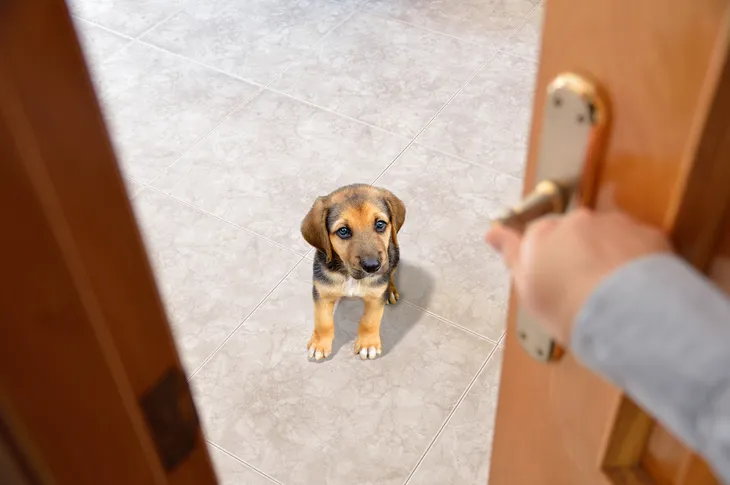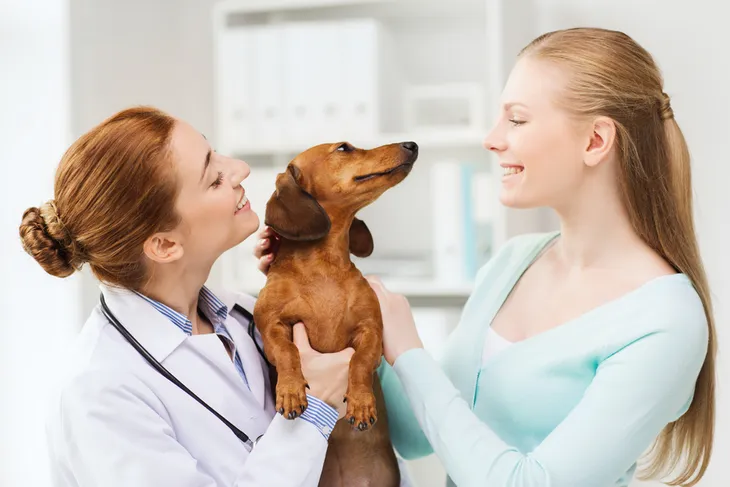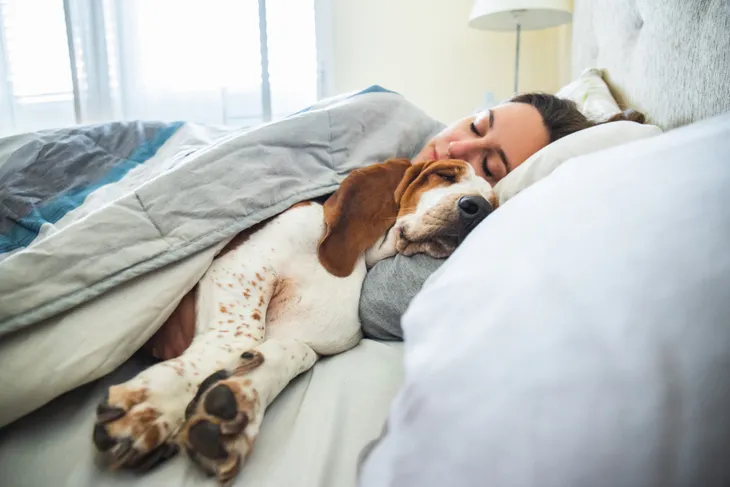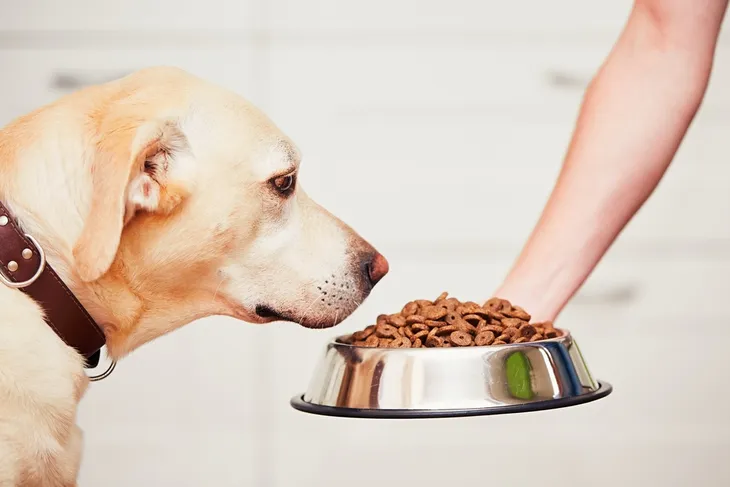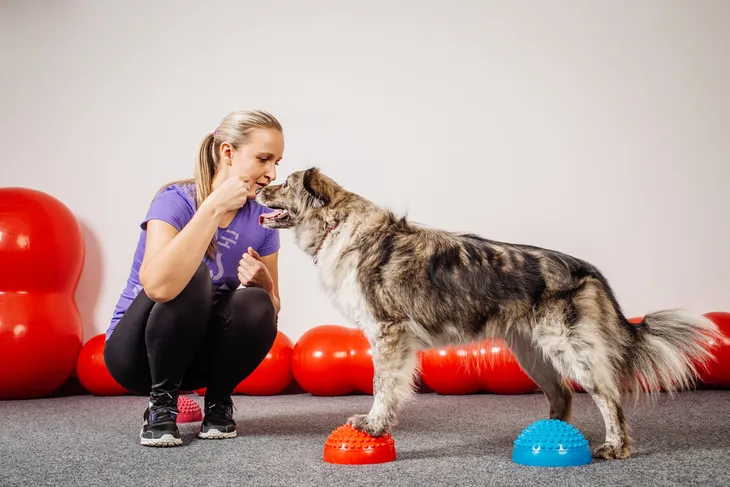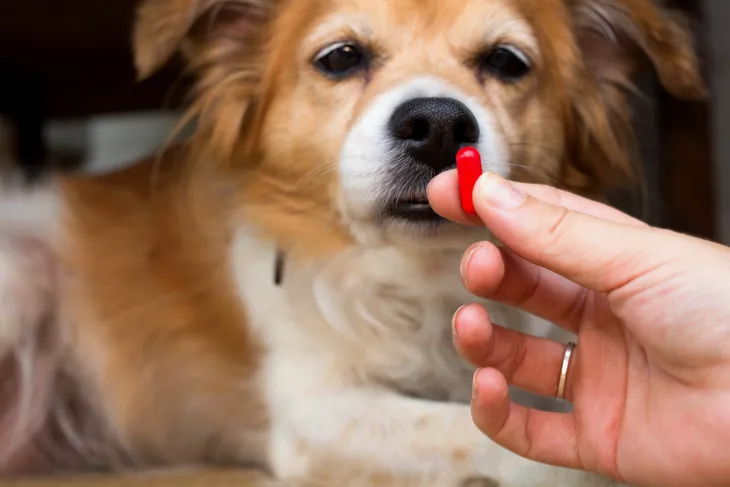- Dogs can have many of the same health problems humans experience, such as diabetes, epilepsy, hypothyroidism, anxiety and depression.
- You should always discuss health and behavior problems with a veterinarian to rule out other potential issues.
- Be aware of how changes in your own life might impact your dog’s mental well-being, such as changing your job, moving or experiencing loss.
- Dog depression can be treated without medication most of the time, so you should research ways to develop and maintain routines for your dog.
- When traditional treatment strategies fail, your veterinarian can prescribe medication to treat your dog that’s similar to medications humans use to treat depression.
Do you ever wonder if dogs can suffer from depression? If you notice stark changes in your dog’s behavior, they may be having a rough time mentally. Perhaps they’re having trouble adjusting to life changes, experienced some form of trauma in the past or simply have a chemical imbalance in their brain. The reality is that dogs share more with humans than you’d think and can suffer from some of the same mental health problems that we do. This guide covers the causes and symptoms of dog depression and what you can do to help your dog lead the happiest, healthiest life possible.
Causes of Dog Depression
In humans, other medical conditions can mimic depression. The same is true with dogs, and it’s harder to nail down the cause of an issue because dogs can’t simply talk to us and say what’s going on in their lives. If you notice behavioral problems with your dog, you should first consider whether they have gone through something recently that could result in depression. Here are the most common causes:
Past Trauma
Did you bring your dog home from a shelter or rescue organization? The harsh reality is that some rescue dogs have gone through the unimaginable. They could have a really difficult time trusting humans if they suffered past abuse at the hands of another. If your dog is having trouble adjusting and showing signs of anxiety or depression, this could be a contributing factor.
New Environments
Dogs develop routines and stick to them throughout their lives. They learn to wake up at the same time each day, when playtime normally occurs, when to come around for food and when to go to sleep. They also learn that your home is where they’re safe, so they can let their guard down and relax when they’ve settled into a home. If you’ve recently moved, your dog may show symptoms of depression because they’re not used to this new environment and don’t yet view it as a safe place.
Lifestyle Changes
There’s a common theme developing here. If your lifestyle recently changed, your dog may be having trouble adjusting. Did you recently start a job that requires new work hours? Perhaps you needed to start going into the office or traveling for work instead of working at home. Some dogs can suffer from separation anxiety when they suddenly have to deal with time away from their owners.
Family Additions and Losses
There’s plenty of evidence that dogs can experience loss like humans do and go through a grieving process. If a member of your family recently passed away, the dog may mourn the loss or mimic your own feelings. Sometimes dogs react to the addition of a new child by becoming depressed if their needs for affection and exercise aren’t being met like they were before. Bringing a new dog into the mix can also trigger feelings of depression because the dog now needs to compete for attention with the new dog.
Symptoms to Watch For
If you notice any sudden changes in your dog’s behavior, you shouldn’t make any immediate assumptions. Misdiagnosing and treating health problems incorrectly can make the situation worse. The best plan is to observe your dog’s behavior, track the changes and then bring your observations to a veterinarian to determine the source of the issue. Dogs with depression might show the following symptoms:
Withdrawal From Activities
Humans suffering from depression stop enjoying activities that they once participated in. Dogs are the same, so you might notice that your dog no longer brings toys your way to initiate play or doesn’t seem excited about going outside. If your dog loves prancing around the backyard but suddenly sits near the door to be let inside instead, this could be a symptom of depression.
Lethargy or Fatigue
The most common symptom of depression is lack of energy. A depressed dog will sleep more often and seem annoyed when you want to get them up and active. Just keep in mind that the definition of oversleeping is different for dogs than humans. While we normally sleep for eight hours a day, the amount of sleep that a dog requires varies by age and breed.
As a rule of thumb, older dogs and puppies can sleep for up to 14 hours a day while active adult dogs sleep around 12 hours. If your dog is spending more time napping than this, it could be a sign of depression.
Loss of Appetite
Dogs can be ravenous creatures because they never know where their next meal is coming from in the wild. Now that they’ve become domesticated, they have a regular eating schedule. That doesn’t mean their instinct to eat whenever possible has gone away. For this reason, whenever a dog stops eating normally, it’s a big red flag. There are tons of possible reasons your dog may have lost their appetite though, so it’s best to report this to a veterinarian to nail down the cause.
Treatment Options
When considering how to treat your dog’s depression, you must first explore the source. Most dogs don’t need medication for depression and can overcome the changes through stimulation and behavior modification. You don’t need to have all the answers, and it’s okay to seek assistance from a veterinarian or animal behaviorist. Treatment options for depression and anxiety in dogs include the following:
Changes in Routine
Dogs are creatures of habit, so the first step is to establish a routine that encourages them to be more active and playful. Take your dog to the park for a bit longer or dedicate more time to playing fetch or tug. If your dog’s depression is due to the addition of a new child or dog, this shows them you’ve not left them behind and they’re still important to you. Whatever you change, make sure it’s consistent so your dog knows they can depend on that new playtime or longer walk.
Behavioral Modification
Sometimes depression can lead a dog down a path toward rebellion, where they learn that they don’t need to do what’s expected of them. You need to be patient with them but also show that you still expect them to follow the rules. The two things that you need to do are reward every good behavior they exhibit and correct bad behavior in a humane manner.
Supplements and New Food
Dog depression can be caused by some nutritional deficiencies. They just aren’t getting the vitamins and minerals their specific bodies need. A veterinarian might suggest adding a supplement or putting them on a new diet. If they’re not eating, you may need to make their food more appealing by adding a little wet food or putting a topper on it.
Pet Training and Coaching
You may seek the services of a dog trainer who knows how to work with dogs suffering from depression. The trainer won’t simply work with the dog during sessions. You will be given valuable information each visit that you can take home with you and apply to your dog’s situation.
Medication
If your dog isn’t responding to other treatment, your vet might recommend medication to help with the problem. Most veterinarians see this as a last resort and will want to see other treatment plans fail before they give you a prescription. If the depression is due to an imbalance in brain chemistry, medication might result in an improvement.
Your Dog May Just Require Patience and Love
Like humans, dogs want to know that they’re loved and have a place in this world. The best prescription for any mental health problem is understanding and love. Show your dog the patience and affection they need while you work through their mental health issues. Setting consistent routines and expectations can make a world of difference for your dog.


